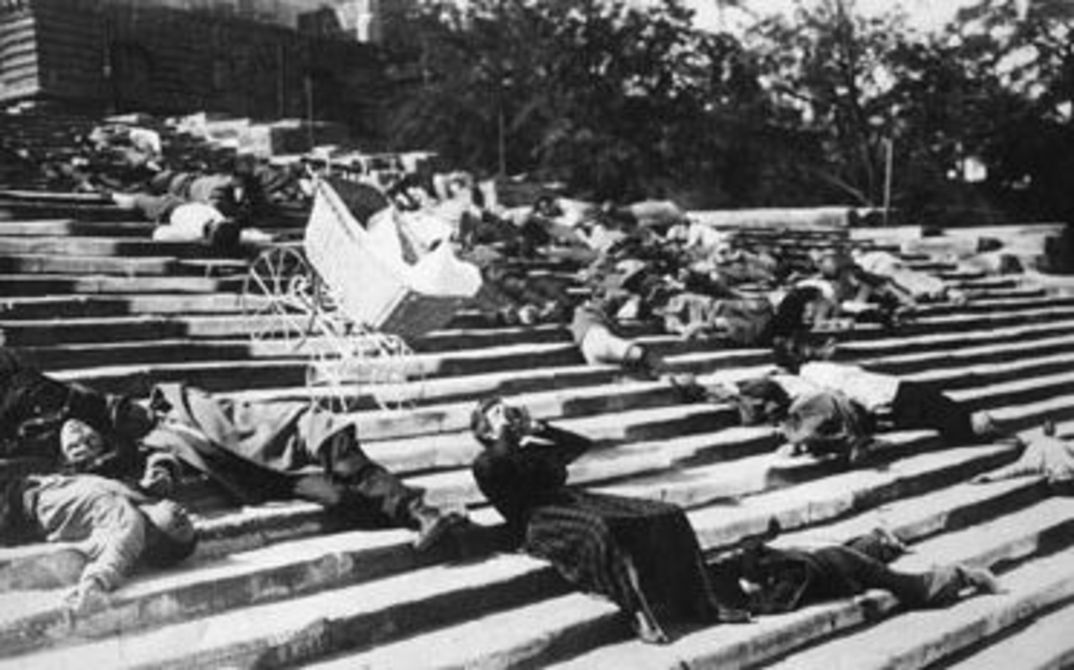NORTH BY NORTHWEST (Alfred Hitchcock, USA 1959, 5. & 23.2.) "Film montage is the only new art form that the 20th century has produced," Hitchcock once said to François Truffaut. Following the principles of classical narrative cinema, he placed montage at the service of the plot, yet his pictorial language revealed incredible inventiveness. There is a famous match cut in NORTH BY NORTHWEST, in which a cut is made in a movement and continued in the next take.
TWENTY CIGARETTES(James Benning, USA 2011, 18. & 27.2.) As a rule, Benning's films contain what the title promises. Here he's filmed 20 people smoking one cigarette each. One take per cigarette. And as always with this director, the film is about time and how it elapses. "The portrait would last as long as the cigarette: each smoker determined the length of each shot. I like how nicotine slowly reduces self-consciousness." (James Benning)
MATERIAL (Thomas Heise, D 2009, 19.2.) A montage of filmic material from the GDR in the late 1980s to Germany today, shot either by Heise himself or as preparation for his other films but never released. New links and relationships emerged from the heterogenous wealth of historical documents in the cutting room. Heise does not compose his material to create a historical panorama, but literally creates a time-space, a soundbox, in which sentences, images, stories and memories can oscillate. "What remains besieges my head. All these pictures always come together to create something new, something different from what they were originally intended to do." (Thomas Heise)
BATTLESHIP POTEMKIN (Sergei Eisenstein, USSR 1925, 20. & 24.2.) is a revolutionary drama about the sailors' mutiny in Odessa in 1905 and the Tsarist troops' attempts to suppress it, in which Eisenstein applied his "montage of attractions" technique that regarded the relationship between two takes more as a collision than as a bond. "A symphony of the masses, in which all kinds of movement, of calm, of tumult and of clash are offset by Sergei Eisenstein's ecstasy of montage." (Harry Tomicek) We will show the film with Edmund Meisel’s perfectly-matched score.
MASCULIN FÉMININ(Jean-Luc Godard, F/Sweden 1966, 21. & 25.2.) With his first film "Àbout de souffle" Godard set about shaking the rules of traditional montage. This collage-montage is an examination of young people and their sexual and political activities. "We are the children of Marx and Coca-Cola"says one of the Brechtian blackboards, which - accompanied by pistol shots - introduce each of the film's 15 scenes. The plot is loosely based around Paul (Jean-Pierre Léaud) a would-be communist agitator who falls in love with the singer Madeleine.
BERLIN. DIE SINFONIE DER GROSSSTADT(Berlin, Symphony of a Great City, Walter Ruttmann, Germany 1927, 22. & 28.2., with Eunice Martins on the piano) is an experimental documentary about one day in Berlin. The energy and movement in the city are brought alive by filmic methods, with dynamic montage, whose rhythm is hypnotic and which gives the viewer a modern experience of speed.
SANS SOLEIL (Chris Marker, F 1982, 22. & 26.2.) "The work that filled the term 'film essay' with meaning more than any other: Marker's reflections in the form of letters (He wrote to me…) form less a classical travel film (mainly from Japan and Africa) than a bold attempt regarding the way memory functions in a cinematographic form. Produced with comparatively simple means (shot on 30-meter film reels, without synchronous sound, without a film crew), SANS SOLEIL amazes until today on account of its virtuoso changes in perspective and temporal layering – it is a film that in the end "remembers itself". (Constantin Wulff) We will screen the film in the German version authorized by the director.

